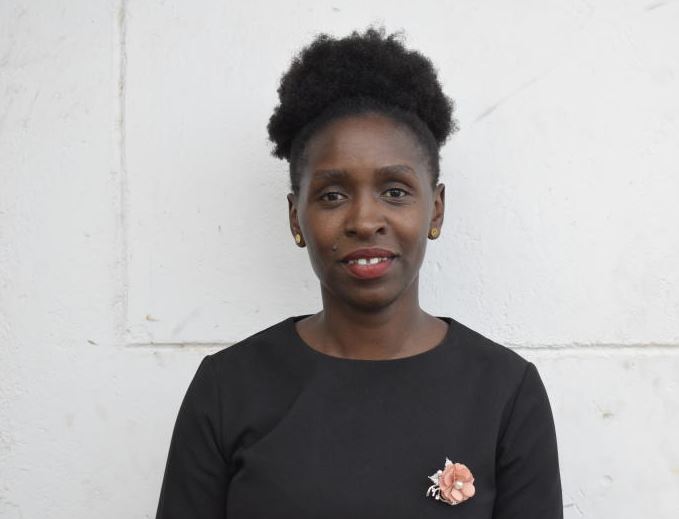
Jabali, Damaris Makimei’s bundle of joy, was born premature and thrust into Aga Khan Hospital’s Intensive Care Unit. Seven months and Sh19 million later, the poor boy died.
And now, his heartbroken mother will pay the hospital Sh20,000 every month for the next 58 years, to clear an outstanding bill for a child she loved and lost before he lived.
“I can’t get closure, because now I am stuck paying for something I don’t have,” Makimei sobs.
Signs of impending doom started when she was barely six weeks pregnant. She was bleeding heavily, and by the ninth week, her blood pressure had hit the roof. Just before the 25th week, her gynaecologist recommended that she terminate the pregnancy, since her high blood pressure was almost causing her kidneys to shut down.
“Because of severe pre-eclampsia (a pregnancy complication characterised by high blood pressure and signs of damage to another organ system, most often the liver and kidneys), dialysis was not an option,” Makimei who fought to keep the pregnancy despite her gynaecologist’s advice, explains.
A few days later, Makimei underwent an emergency cesarean section at Aga Khan Hospital, giving birth to her son, Jabali.
Born at 25 weeks, with a weight of just 720 grams, Jabali beat all odds and went on to record major milestones.
During his stay at Aga Khan, Jabali developed into a chubby and bubbly boy, but complications associated with preterm birth kept him from going home and eventually led to his death.
“He could smile, cry, he grew from 720 grams to 5.4 kilograms. He was such a big boy. He was weaning, he could sit,” Makimei, a marketing lead at Gamechanger, says tenderly.
Since he was born at 25 weeks, Jabali was categorised as extremely preterm, the risks to his life endless. His lungs were yet to mature, his eyes were underdeveloped, he suffered from brain bleeds and undeveloped intestines, in addition to a congenital heart defect that affects premature babies.
As the days turned into weeks and weeks into months, Makimei realised the hospital bill was fast becoming unmanageable, yet there were no signs of her baby getting well enough to leave hospital.
“I realised my bill was getting out of hand but many hospitals were not willing to take him in because he was already in ICU,” Makimei told My Health.
Frantic, Makimei assessed options as she aimed to transfer her baby to a public hospital or a more affordable private facility, but the situation was hopeless because none would touch a preterm baby born before 28 weeks, especially one battling for life in the ICU.
The clock was ticking ominously, and so was the bill, notching Sh19 million on December 10, 2019, when Jabali died. Sh40,000 a night in bed charges, consultation fees, nursing care fees, life support machine fees, cost of two surgeries....
Of course the hospital wouldn’t release the body, insisting that Makimei leave them some form of security.
“I had nothing. I had used up everything. The bill was almost Sh19 million, I paid Sh2 million and NHIF paid Sh700,000, so the balance was Sh16 million,” she says.
Through social media fundraising, she was able to raise and pay an additional Sh1.2 million – a drop in the ocean. Hopeless, Makimei considered abandoning her baby’s body at the hospital. But after several days of gut wrenching negotiations, Makimei reached an agreement with the management of the Aga Khan Hospital to pay Sh20,000 per month, until she completes the bill.
Her son’s complications and ultimate demise have forever changed the course of her life. Emotionally, she still carries the burden, even as the financial load follows her for the rest of her life.
Makimei has had to make difficult changes as a result, such as moving to a cheaper house so she can afford to take care of her five-year-old daughter while clearing the sh16 million debt.
While Makimei’s situation is moving, it is hardly unique, as many more families shoulder the burden of costly hospital bills when they get premature babies, many of whom are born with serious complications.
As many public hospitals lack adequate resources to care for these children, parents are forced to go to private hospitals, which, as Makimei says, ‘charge an arm and a leg’ for these services.
Like Makimei, Patricia Kitaa and her spouse Morris Mutuma are currently fundraising to pay off a Sh7 million bill incurred by their twin sons who were born prematurely, even as they negotiate with the Mater Hospital to release them.
Like Makimei, Kitaa’s pregnancy was complicated.
“She started bleeding at six weeks. The hospital said her cervix was opening, so she was admitted and gave birth,” narrates Mutuma, her spouse.
On September 9, 2019, with her pregnancy at 28 weeks, Kitaa had to deliver due to the opening of the pelvis, giving birth to one twin, weighing 1010 grams via normal delivery and the other, weighing 960 grams, via caesarean section.
Just a young couple in their early 20s, the experience has been burdensome.
“We are in our early 20s. She is 21 and I’m 24. This is how parenthood has started for us. It is very stressful,” says Mutuma, an ICT officer at Nursing Council of Kenya.
Through fundraising, they were able to pay Sh3 million, but Mater Hospital refused to release the babies who developed infections, shooting up the bill by another Sh2 million. In January, the young couple reached an agreement with Mater Hospital to release the babies, while continuing to fundraise to clear arrears. They were given up to July this year to pay Sh2 million.
My Health contacted both hospitals on the release and detention of patients and bodies of those with pending bills.
Mater Hospital did not respond to our requests, despite promising to provide an official response. The management of the Aga Khan Hospital, on the other hand, said they could not respond on Makimei’s case due to confidentiality principles.
“Nevertheless, we would like to clarify that as a policy The Aga Khan University Hospital, Nairobi, does not detain patients or bodies of the deceased on account of pending medical bills. This policy was applied to the case in question.”
My Health asked several insurance companies why they do not not routinely cover premature births.
“Standard covers do not cover costs associated with pre-term babies. The benefit has to be purchased separately as a rider and is one of the expensive benefits due to the costs associated with the admission of a pre-term baby,” a representative of Minet told My Health in a statement.
 The Standard Group Plc is a multi-media organization with investments in media
platforms spanning newspaper print
operations, television, radio broadcasting, digital and online services. The
Standard Group is recognized as a
leading multi-media house in Kenya with a key influence in matters of national
and international interest.
The Standard Group Plc is a multi-media organization with investments in media
platforms spanning newspaper print
operations, television, radio broadcasting, digital and online services. The
Standard Group is recognized as a
leading multi-media house in Kenya with a key influence in matters of national
and international interest.











